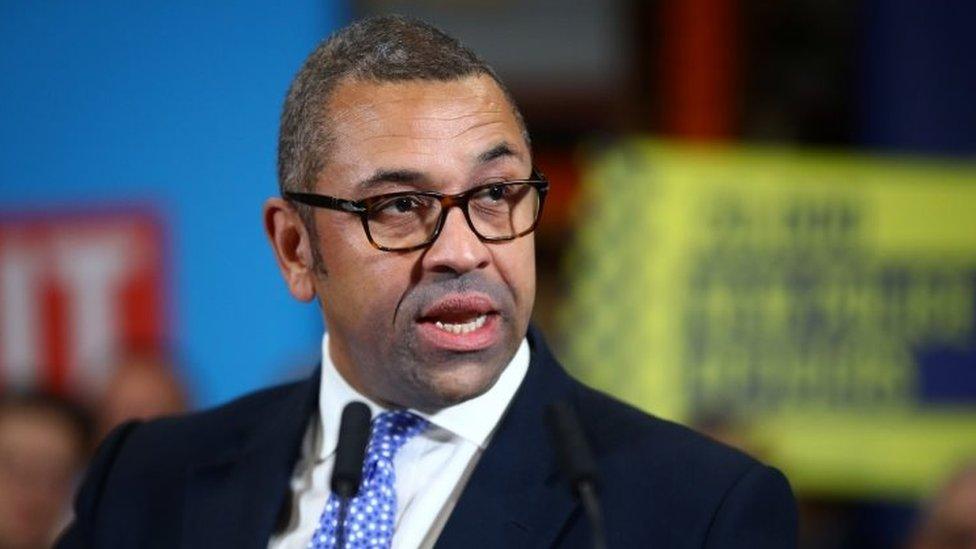General election 2019: Tory chairman 'sorry' for Islamophobia in party
- Published

Conservative chairman James Cleverly has apologised for cases of Islamophobia in his party.
Mr Cleverly said he was "sorry" when Tory members and candidates "do or say things that are wrong".
But he added that he was "confident" there was now "a robust mechanism" in place to deal with the issue.
The Muslim Council of Britain has accused the Tory party of having a "blind spot for this type of racism" and of not doing enough to tackle it.
Speaking on BBC Radio 5 Live's Pienaar's Politics, Mr Cleverly said an investigation into prejudice in his party will get under way before the end of the year.
Burka comments
He said: "We said it will be initiated this calendar year.
"We have been doing, in parallel to the general election campaign, preparatory work ahead of that and we'll be making a more formal announcement as soon as the election is done.
"It will specifically look into Islamophobia in my party. It will, by definition, also have to look at other stuff as well, because you can't always unpick this.
"But we are and absolutely have always been clear on this. We recognise that in mass membership organisations that there will always be people that say and do things which are completely inappropriate."
Tory leader Boris Johnson has also come in for criticism for a newspaper column last year in which he said Muslim women wearing burkas "look like letter boxes".
Tory election candidate Parvez Akhtar said the effect of the column has been "to reinforce the widely held view that the Conservative Party has a blind spot when it comes to Muslims".
Mr Cleverly told John Pienaar the prime minister had already apologised for his comments.
'Liberal democracy'
Pushed again after being informed that Mr Johnson only apologised for any offence caused by the comments, not the comments themselves, he added: "If you read the piece, the points that he was making in that piece was that unlike other European countries who have put a blanket ban on the wearing of the burka or hijab, the UK does not do that.
"The point he was making was that actually in a healthy liberal democracy like we have here in the UK, just because someone has, you know, a personal discomfort with that does not mean that it should be banned.
"That is a defence of our liberal democracy."
Earlier in the election campaign, Mr Johnson himself apologised for the "hurt and offence" caused by Islamophobia within the Conservative Party ranks.
Mr Cleverly claimed there was a "massive gulf" between the scale of Labour's problems with anti-Semitism and the issue of Islamophobia in the Conservative Party.
Candidates suspended
Asked if he would apologise for cases of Islamophobia in his party, Mr Cleverly said: "Well, of course, I'm sorry. And I'm sorry when, you know, people do or say things that are wrong.
"I am confident that my party has a robust mechanism for dealing with it.
"We investigate this. It's done independently. We have independent people looking at this and they come to adjudications and where people have had to be either sanctioned or expelled from the party. That has happened."
The Conservative Party suspended a number of members last month after the Guardian supplied it with a dossier produced by an anonymous Twitter user containing examples of allegedly Islamophobic social media posts.
A number of members were also suspended in September, after the BBC highlighted 20 cases to the party of members posting or endorsing Islamophobic material online.
The Scottish Conservatives suspended a Glasgow election candidate, Flora Scarabello, after she was accused of using "anti-Muslim language".
And the party's candidate in Aberdeen North, Ryan Houghton, was suspended over alleged anti-Semitic, Islamophobic and homophobic comments he made seven years ago.
Mr Houghton has apologised for any hurt caused but insisted the comments were taken out of context.